
Phil: Welcome to the ONLINE COURSE MASTERS SHOW where you learn ‘How to create, launch and promote your online courses’. Phil Ebiner here with my co-host Jeremy Deighan and today we have a very special guest notorious in the world of online course creation, this is the Jerry Banfield interview. So, Jerry, we're gonna dive into your story, hear the ups and downs and really how you got to where you are today? But first I just want to say, welcome to the show. Thanks for being here.
Jerry: Well thank you for having me, Phil. I'm grateful after buying your course I learned how to teach online 3 years ago. Now we're doing a video and having our call together. This is great.
Phil: Yeah, seriously and Jeremy how's it going? I know you are in the midst of a crazy life-changing move. Do you want to share a little bit about that with the audience?
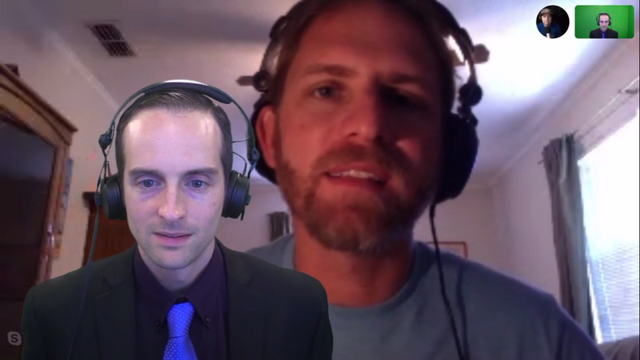
Jeremy: Yeah so my wife is a traveling medical technician and just picked up by a job across the country. We're heading out to Montana next week and I'm gonna be on the road for a couple of months. I'll be home for the holidays and then we'll be back out on the road. So, this is really interesting because I'm gonna have to learn how to do everything that I've been doing in my home studio in a traveling way. So, I'm having to figure out like what's the bare essentials I need for recording courses, what's the smallest microphones and lighting that I can get away with? So it's a whole new bag of problems but it's a lot of fun. We're really excited and it's gonna be a good experience.
Phil: Well and then you put together the course ‘How to be the traveling course creator’.
Jeremy: Yeah exactly.
Phil: So Jerry, let's go back to a few years ago when I'm just gonna put you on the spot and it seemed like you’re on top of the world, you were crushing it on Udemy and then all of a sudden you disappear. Talk to us about, how you got into teaching online courses? How you had success on Udemy and then what happened?
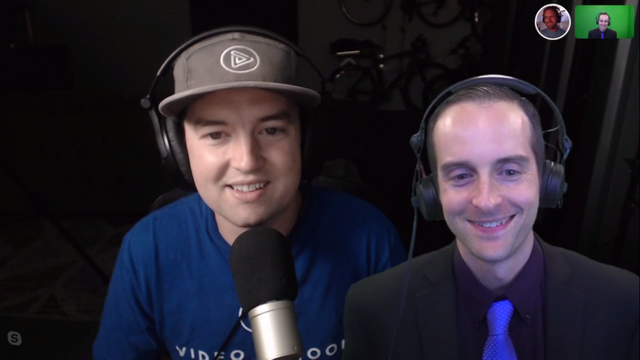
Jerry: I originally got into teaching online on YouTube. I started a channel in 2011, put a bunch of terrible videos and then I started getting clients and trying to make money on the business online, helping people with Facebook ads and Google Ads. I put my first kind of teaching video up about Facebook Ads through a live YouTube stream just hoping to use it to get clients and then someone suggested after watching that like, “Hey, where's your online course?” They thought I must be selling an online course by doing a free webinar on Youtube. I said I don't have one. I didn't even know that you could teach classes online and they gave me a link to Udemy and said, “Why don't you put your course up on there”? I looked around on Udemy and there was not one good facebook ads course and I thought, “Wow, I can make a good Facebook Ads course” and that's how I got started.
Phil: What year was that? Do you remember?
Jerry: I started at the beginning of January 2014 on Udemy. So I literally took a recording of my youtube free webinar and tried to put that up as a course on Udemy with a couple of small edits. They rejected it.
Phil: Then what happened? You had to rerecord it and create a brand new version or what?
Jerry: Yes, then I got upset. I'm like this website is stupid. I'm not gonna use it. Then I came back like a couple of days later. I'm like, “Okay, I'll just film a little 30-minute productivity course and see if I can get it approved”. They approved it and then I'm like, “Okay, I'll film a good new version of my Facebook Ads course” and that was my first course that did well on Udemy.
Phil: Okay got it and then so what happened from there? What courses did you teach and was that first one succeeded in making money for you?
Jerry: It depends on how long of a time you look over. I spent 12 hours and filmed the whole 3 hour Facebook Ads course in one day, put it up, tried to sell it for months. I sold 2 copies of it. One new potential client and one were organic sales. I was really frustrated and again said, “This website is stupid. I might as well just give my course away for free. The information is getting older and no one's taking it.” So, I started giving out free coupons and even running Facebook ads to free coupons on my course. Then I got a few reviews on my course from doing that. Then in July 2014, it made $1,000 in organic sales and I thought, “Oh my God! I've barely been trying at this. It was just a side project. If I put my whole energy and attention into this, I could do this and I wouldn't need to do anything else.”
Phil: Mm-hmm okay and the course I mean, was it getting good reviews and that's why it was selling organically on Udemy?
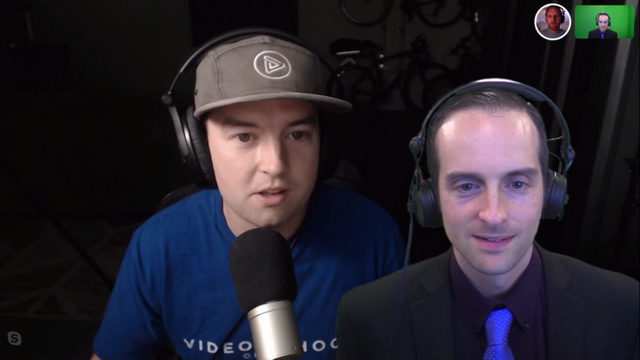
Jerry: At that time, it got some good reviews from the free coupons I had given away and I kept making the course better and better. It got to be an 8 or a 10-hour course. It got to be the longest best course on Facebook Ads. I just kept improving by looking through every single bad review. I went through and looked at everything in the course and how I could fix it? I gave away more and more free coupons and then it kept snowballing from there until Black Friday. I made like $6,000 on November 2014 and that's when I went all-in. I'm like, “Okay, I'm going to drop everything else I'm doing. I'm gonna borrow money so I won't take any more clients and I'm just going to do 2 videos on Udemy every day. I'll put 2 videos on Udemy 7 days a week and this will work.
Phil: All right, so you were creating new courses or adding videos to those existing course? What was the next step for you in terms of building your Udemy courses?
Jerry: The month in November 2014 when I got the $6000 earnings, I had 3 total courses. I had one on the Facebook Ads and that one made almost all of it but I also had a course on entrepreneurship, the productivity course and maybe one other small course. But then I saw Alan Hills saying, “How I make $1000 a day on Udemy”. I thought if he can make $1000 a day, I can make $2,000 a day on Udemy and then I started working to create courses. Between December 2014 and July 2016, I made 40 or 50 courses by myself and then I co-instructed 30 or so more.
Phil: Yeah I mean, that's an incredible number. What would you say if someone asks you about teaching 100+ courses now at this point in such a short amount of time? A lot of people will say, “How can you teach that many courses on topics? Are you even an expert in all those courses? What's your response to that?
Jerry: First is to get in a very efficient filming process. Originally it took me hours to make 1-hour of video. I got it down so I could do an hour of video in about 2-hours of real-time. I bought a better computer and doing a really fast workflow so I could teach everything I knew really fast. The second thing I did is, I started partnering with other people and this is where my income really went crazy. I searched and looked at the in-demand topics and then I went on Upwork and I'd find someone in like Eastern Europe for like $10 an hour, who knew the skill that was needed on Udemy. I'd pay them to make the course and give me copyright and then I'd put the course up and do all the marketing and sales for it. That's where I was able to upload an entire course that someone else made and upload my own course in the same week.
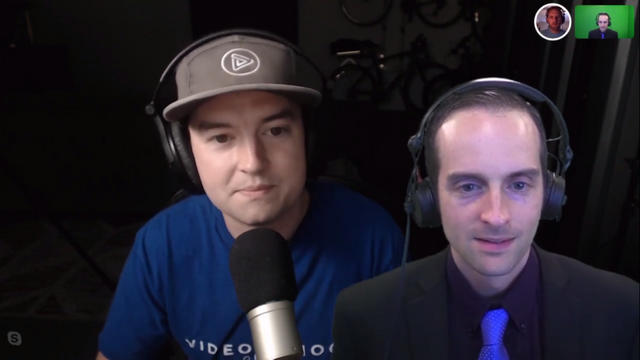
Phil: Got it and did it just snowball in the sense of just putting up the courses? Did you just organically get new students that you could promote your new courses to and it just continued to grow and grow? What kind of marketing were you doing and having success on Udemy at that time for all of your new courses? Were you still giving away free coupons and/or ads or anything like that?
Jerry: I did everything. I did ads, YouTube videos, Facebook ads and I did a huge barrage of free coupons I had an email list and a website. The ads got crazy at one point. I was up to almost $1,000 a day in ads. If you ever searched for Udemy, you got hooked into my funnel.
Phil: Yeah, I think I remember hearing that you were doing a lot of ads. So, at that time were you just sending traffic straight to Udemy or you were doing a funnel that had email marketing and that kind of thing?
Jerry: I had all kinds of different ads. I had ads when you searched for Udemy. I had Udemy.com/instructor and I sent people to my course. If you looked at any of my course landing pages, I had remarketing ads with affiliate links to send people back to Udemy on my courses. Some of the best ads I did, I did really long format YouTube previews of my courses. I got a 25-hour course. I put 5 hours of it as a free preview, I'd do an ad for it, ranked high on YouTube and then I'd get a ton of organic traffic for free.
Phil: Yeah and that's something I've actually had success myself with. That's one of the only ways that I've actually been successful with advertising. It is putting out longer preview videos and promoting those on YouTube to try to get those to rank organically on YouTube and that has been successful for me. What was the peak on Udemy? I mean, how much were you making a month on Udemy when you hit your peak?
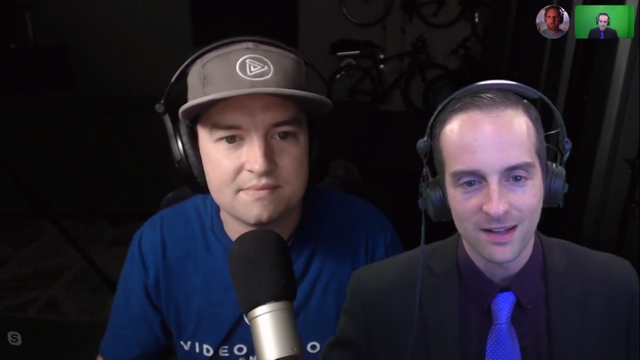
Jerry: The peak was in November 2014. I made $6,000 a month and I started doing Udemy full-time at that point. November 2015 made $80,000 and January 2016 made $90,000 that month and that was the peak. Even when Udemy did the price change, despite all the negative stuff going on Udemy, I was still making thousands of dollars a day in June 2016.
Phil: Wow! Yeah I mean that's a lot of money. Do you think that someone else could have replicated exactly what you were doing? I mean there's something about you that I think is charismatic in a sense that people watch your stuff. I mean you continue to put out a ton of content and people just get hooked into watching your stuff. So I guess, I'm wondering is there anything else you think you do or did that made your courses that successful on Udemy?
Jerry: The gist and the attention I paid, I was obsessed with it. The changes in my personal life helped out a lot also. I started going to Alcoholics Anonymous and getting the whole rest of my life together in April 2014 and the growth of my business went right alongside my personal life growth. I started getting healthier, starting to think more clearly and focus that it all went together for me.
Phil: So what happened with Udemy? Why did you get kicked off?
Jerry: I had no strikes on my account. The whole time I'd been an instructor, I'd only one minor strike. I sent something incorrectly in a promo announcement that was like almost a year before. I had no strikes, no trouble and hadn't talked with anybody from Udemy or the policy team all year. Then one day in June 2016 out of nowhere they send me an email saying “A final suspension”. And they had 2 kinds of arbitrary violations. They said that I had some questionable reviews on my account. 70 out of my 10,000 reviews on my account were from questionable sources and I had just given away 40,000 or 50,000 free coupons before that. So, of course, they got shared. People were like selling them on Fiverr and saying I'll give you all Jerry Benefield courses for $5 and then you get people going to Fiverr and doing them that way.
Another arbitrary policy violation is that, I'd improper co-instructor relationships and that I've just been joining courses to do marketing, whereas, in every single course I had at least two videos as an instructor which to me is an impossible policy violation. If you put videos in a course, you're an equal partner, you didn't just join it for marketing. On one course they cited, I actually had filmed half the course. I joined the course. The course wasn't very good. I put 2 more hours of videos into it. It was on digital marking. It made it a lot better and they said that I'd done something wrong on it. Made it obvious like, they just wanted to get rid of me and they just made stuff up and went with it.
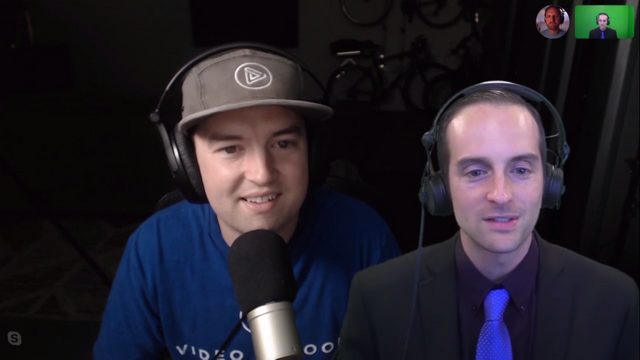
Phil: So now that I'm hearing this story from you or your side of the story, it is sparking some memories of the whispers and the rumor mill that was going on at the time. So, you weren't paying people for reviews?
Jerry: I had paid people for reviews and actually Udemy had told me I could do that. I had a Skype call at the beginning of 2015 after seeing that the top instructor on Udemy had a very effective incentivized review system. If you left a review on his course, you got a year of free web hosting and his course had 10x reviews the next best instructor did and I saw them like, “Oh, so I can do incentivize reviews.” I had a call with them, talked to them and said, “I'll pay people to take my course and leave a review but not a specific star rating and I did. They weren’t all positive believe it or not even paid people to take my course. Then I did that so much. I got like hundreds of reviews doing that because the people who left a 5-star review then I'd pay them to take all the courses, whereas, the people that left a 1-star review, I just wouldn't pay them again.
Then they said suddenly that I couldn't do that and they changed their review policy. So after that in May 2015, I did nothing to do at all with reviews, in fact, I became an expert on the policy and made absolutely sure I was doing nothing wrong on policy going forward.
Phil: Yeah, obviously I can see how that would be unfair for other instructors but if you had talked to them and got an okay, that's a different story. I'm surprised that they would give you the ‘okay’ to basically pay for the reviews but I also have always felt like it was unfair. Some instructors get the deal with the web hosting or whatever it is the certifications and find that sort of loophole, where they can actually get their students to pay for a product off of Udemy that they're making money from. Then, on the other hand, we can't promote anything. We have to be so careful about our promotional announcements, our educational announcements and things like that. That sort of policy has always been a little bit iffy with me too in terms of just understanding it. So, I feel like Jerry Springer or Dr. Phil or something right now. So honestly, you didn't feel that it came out of the blue and at the time you didn't feel like there was any sort of policy violation?
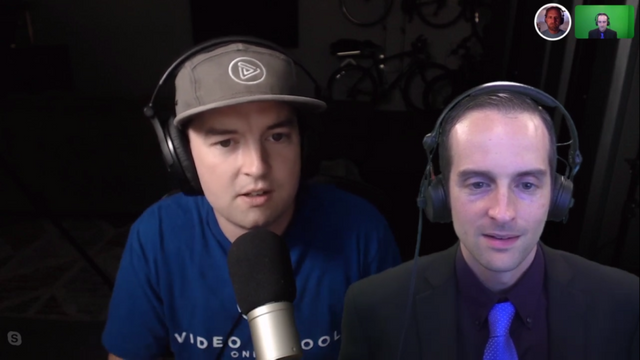
Jerry: Yes, there was absolutely no policy violation that I made. I had even talked with the policy team in August 2015 and we were good. They said, we understand that we've past what you did with the reviews, make sure you just don't screw anything up from here but they also made it clear that they were looking for an excuse to get rid of me. It sounded like they wanted to get rid of me and any reason they found would do.
Phil: Mm-hmm. So, they send you this message and you were just unable to access your account? what happened at that point?
Jerry: Yeah my profile instantly went offline. I couldn't get into my account or do anything. I had ignored hundreds of suggestions to do a good job setting up my own self-hosting. I lost all of my landing pages. I lost all the course outlines because I just put everything on Udemy. I lost a lot of my own material, the sales, and marketing for a bunch of the courses. Since then I have been unable to put stuff back up effectively because just not writing that sales copy again.
Phil: So, what did that do to you? I mean, I would be scared if Udemy disappeared tomorrow for me. I think right now I'm in a place where I could survive. I got my own platform. I've got other platforms that would be fine but to be making $90,000 in a month and then to have that disappear, what was that like for you?
Jerry: It was like dying. I had literally just hired my friend to work full-time on the ads and he just graduated from college. We were all excited and I called him up the next week, I'm like, “Sorry Albert, I got nothing for you to do now. I lost 95% of my income”. I immediately cut the majority of my expenses. I had a lot of people working for me who were doing things like uploading courses, editing videos, and email marketing. I immediately just cut everyone loose and cut down all my bills, and expenses. The cool thing was, it was kind of freeing though. I was so consumed with Udemy for the year and a half before that. I did some stuff I really wanted to do like I played a bunch of video games on live stream. I started doing all these cryptocurrency tutorials.
The highest point of my business was actually 2017 because all the stuff I did with the freedom of not having to do Udemy every day. I just did all other stuff I wanted to do. It was kind of fun. I had a big resentment like they screwed my whole business up and every time I've had any financial difficulty since then that comes back up like stupid Udemy. If then hadn’t ruined my business, I'd have so much more money now.
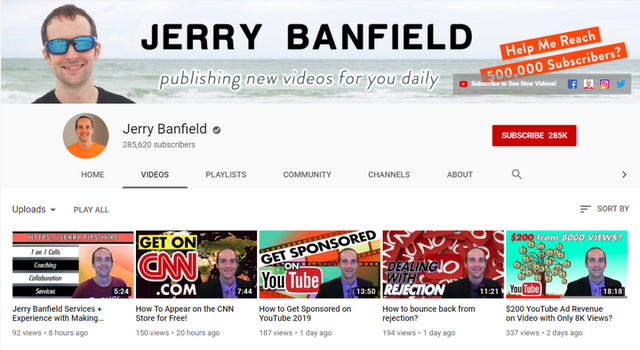
Phil: Yeah well, you have somewhat of a redemption arc in the sense that you have a Youtube channel which at this time is almost 300k subscribers. You submitted info to us that said you're making over $10,000 a month. Now take us through what you've done to monetize your expertise or create passive income since Udemy disappeared?
Jerry: It has been an adventure since Udemy disappeared. I was doing Skillshare a lot at one point and then I got frustrated with Skillshare and stop doing that. The thing that's worked the best between now and then, I got into cryptocurrencies just by initially making some tutorials and then people liked and I made more tutorials. Then I saw that “Hey if I told someone how great this cryptocurrency was right after I bought it then they'd buy it and then the cryptocurrency I had would go up.” So I promoted cryptocurrencies a lot.
Phil: Is that legal?
Jerry: I am not sure.
Phil: I mean, I don't know what the rules are and it might be different depending on how big your audience is but I think having as bigger named celebrities got in trouble for doing that kind of thing.
Jerry: I'm not sure. It seemed legal to me because it's not like stocks. Yes, you can't do stuff like that with stocks but cryptocurrencies have been so out in the open and Wild West. I sold video courses on cryptocurrencies on StackCommerce and that did well. StackCommerce has made consistent income the whole time which has been really nice.

Phil: Great. So you're still on stack?
Jerry: Yeah, everywhere but Udemy.
Phil: Did something happen with Skillshare? Did you get kicked up or did you just stop?
Jerry: Skillshare, they took down a bunch of my courses. They changed some policy on what courses were allowed on Skillshare and then wreck directly took down a bunch of my courses in 2017. So, I said this is stupid. I'm just gonna do crypto and forget Skillshare. Then I started getting back into Skillshare and they gave me a strike. They changed another policy and I got annoyed with that. Then I got my whole profile taken down on an Argentinian football team DMCA request. They submit requests every day on random URLs trying to take down people posting their football games online and my last name happens to match one of the team names and my Skillshare profile got caught in the crossfire along with my Patreon profile.
Skillshare immediately took my whole profile down off of that and then I submitted a counter-notification. It took a month to put my profile back up and they kept my income from it. Then they gave me a strike on a course I uploaded right after that. So, now I'm ignoring Skillshare. I'll take the money but I'm not doing anything else on it. I'm not even teaching video course anymore. I'm just putting stuff on YouTube now and then. I got like a Mentorship Program and Uthena.
Jeremy: I was gonna ask, have you tried to get back in touch with Udemy? If they reactivate your account, would you go back on there again or are you just completely done with it?
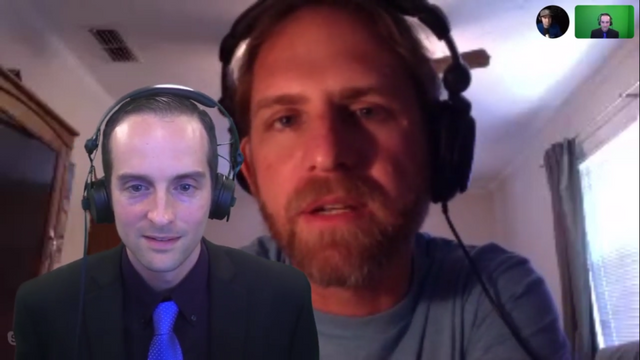
Jerry: I actually did have an interesting conversation with Udemy and Udemy double reported $300K dollars of income. They sent me a $1,099k miscellaneous for income that was also tracked on a PayPal. I didn’t do my accounting correctly. So then, the IRS sent me a letter that they needed $90,000 of unpaid taxes. Udemy was really helpful in getting that fixed but I sent the CEO an email asking if they could put my profile back up? He ended up resigning as a CEO right after that but now I'm not interested in doing anything on Udemy. If I can teach everything and give it away, that's a better business model than to have people pay for something. So, I'm just doing Youtube full-time like I did Udemy and I'm also seeking investors to build up Uthena.
Phil: What's Uthena? Is that your new platform?
Jerry: Yes, imagine something that brings together the best features of Facebook which is profiles, messaging, and groups. YouTube which is organic search discovery and free videos. Udemy being able to sell online courses. Skillshare having a subscription to a bunch of courses. Upwork being able to post jobs and Fiverr being able to offer services. I'm making Uthena to bring all the functions I just listed into one platform that’ll give you the benefits. Imagine on Facebook, if you could set your content at a price point like you could say, this is free or this cost $9 on every single post you make and you can directly hire for jobs. That's my vision for Uthena. If someone asks you, Phil, how do you make money online? You could say, just go to Uthena, use it and you'll make money online.
Jeremy: This would be like a subscription service that you would pay for or would these be like one of the things like Fiverr?
Jerry: Right now, it's only based on approvals. If you're an existing Udemy instructor because they do all the hard work to get your courses up there, we’ll put your courses on there and you can offer services. That's just a functional platform but we're seeking investment to hire a development team, to build a platform where anyone can join for free. So, this will be open just like Facebook. Anyone will be able to sign up, join, offer services, and make money. There will be like no verifications or banning people.
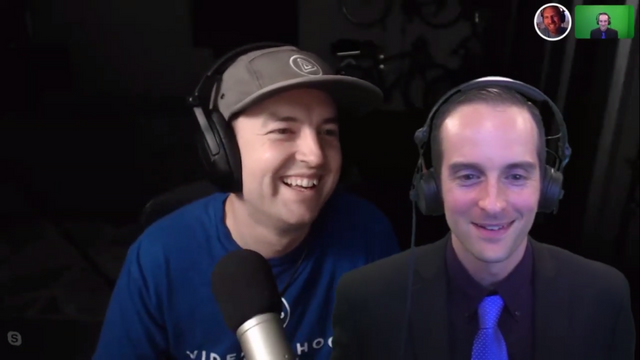
Phil: (Laugh at “Banning People”) Got it. It’s the Banfield’s promise, no banning people.
Jerry: I've realized that if you really wanted to do well, you wouldn't want to ban anybody because you want to keep everybody on your platform. If you kick people off, they build things like Teachable. They build stuff that takes you down.
Phil: But are there gonna be rules in terms of how people can use the platform, promote their products, and things because I think that's the issue with Udemy. If Udemy sees one instructor using even if it's not blackhat and it's within the rules but if there are ways that they're somewhat gaming the system to rank higher and to sell more courses, do you feel like that's a bad thing or do you feel like well people should be able to do whatever they can to make money online?
Jerry: I feel that as long as it's within the laws of whatever country is operating it, then it should be legal because everyone is doing well on almost any platform. They are gaming the system to some degree in their favor whether it's using paid ads or because you already are a best-selling author. It's all kind of a judgment like well I don't like how this person is gaming the system but this person's games are okay and we will let them make a lot of money.
Phil: So, are you making money on Uthena right now? What is your kind of current situation with online income? Are you making YouTube ad revenue? You said you're still making some money from Skillshare and StackCommerce but what about these other platforms?
Jerry: Well I made so much from cryptocurrencies that I kind of coasted for a couple of years and this year with launching Uthena, I've been into spending. I've spent $90,000 which is more than I've made this year to test out all these different angles and to build up Uthena. We got a sales report where you can see in real-time everything is being bought on the website and that's going to be coded into the full platform. That to me will go viral when you can see what people are paying for in real-time and how much they're paying. I've been making about $10,000 a month in income on average for the last year and I've been really frustrated over that lots of times like this isn't fair. I made so much more than this before, I ought to make more but it's been kind of fun also because I see so much prosperity coming. I look back at the beginning of my time on Udemy, it’s kind of fondly. When you don't have any proof that things are going to work, it's just a big leap of faith. There's a certain boardroom that kicks in when things are going so well that you know when you're making $80,000 in a month and you don't need that much, it's not as challenging.
Phil: Yeah, I totally get it and you know even for myself this entire year since I had my twin boys, I've told myself that it's maintenance mode for me. Not to sound bad to any of my students as I, of course, want to support them and continue creating content but for my personal life, I had to make that distinction. I couldn't continue to grow, grow, and grow on Udemy and with my own business if I want to have the personal life balance that I want. I want to spend time with my kids and just take care of twin boys or you know babies. It's a lot of work. So, I totally hear you on that. The tough question for me is, why should someone and again I'm just putting you on the spot because I feel like you're completely fine with that but why should someone trust you and go on Uthena, when you know you got banned off of Udemy and even if according to you or according to the Udemy rules, there was no rule broken? I'm sure that's tough for you to try to get people to trust you, your new ventures or have you not found that to be the case?
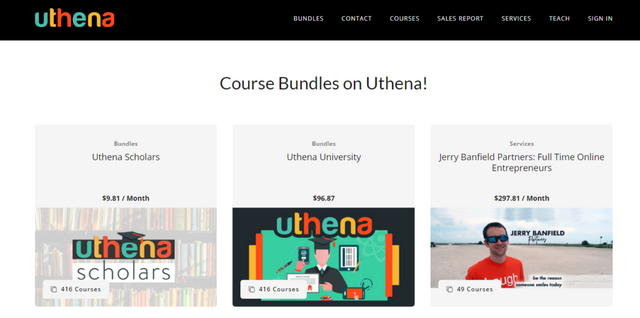
Jerry: What I've done well on is, I focused on helping the people that want my help and that's been one of my biggest challenges over the years. It is to do a good job for the people that want me to help them and that’s what I've been doing. I've seen some messages like, “Hey, you got to get people to trust you more”. I'm like, “No, I don't”. All I need to do is help the people do a good job for the people that do want to join Uthena. Success and things going well always bring around more people and changes people's lives. I mean hardly anyone wanted to work with me before thing. I literally was hustling and sending tens of thousands of messages to get clients and then things got so well on Udemy, people pay me to do webinars to promote myself. So, you just do a good job and help the people you want. The audience will grow over time.
Phil: Cool. So, in terms of creating content, it sounds like you're mostly doing YouTube videos right now. I'm on your YouTube channel. You've got a ton of content that you're putting out and on an incredible range of topics. What's your process for coming up with topics for your YouTube channel?
Jerry: Well, you might want to know how I got to that point? I looked at it with all the money I'm spending this year, I'm like, “If my business fails and if I were to not be able to make this work, what would I've wanted to do? I would want to have taught every single thing I know and have it out there so people could learn from it indefinitely. That's my basic reason why I'm doing it and if it worked well, I'd want to do the same thing. So every single thing I know and can help somebody with, I start searching for it. I try and look around on YouTube and see what exact keywords there are used. I use Tube Buddy and find specific phrases, for example, “Okay, people are searching for a new ActiveCampaign tutorial, I'll make that”.
I just teach things like Alcoholics Anonymous videos because it's something I'm passionate about. I don't really care how many views those get and whatever feels right, I just step up. I get thumbnails graphically designed and I've got like 50 of those ready to go every day. I just pick one topic, hit record, talk about it, hit record again, give it to my video editor, and he uploads it. Now, I've started doing YouTube ads and these YouTube ads are crazy. I've been doing display ads and they're called video discovery ads and these are the cheapest highest quality clicks I've seen before in paid ads. These are amazing.
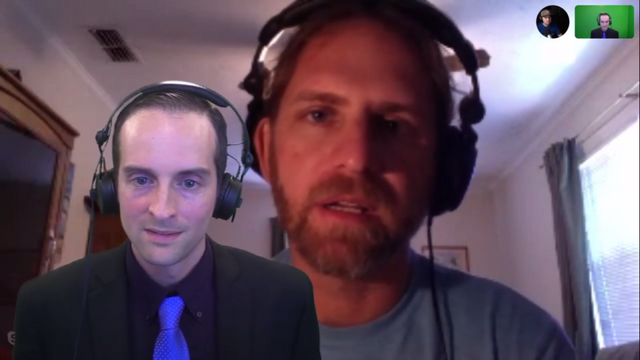
Jeremy: I just wanted to ask you because you were talking about teaching everything that you know and this is something I've actually struggled with myself. I have so many hobbies and things that I love but people always tell you to pick one passion or your one thing. When you're out there teaching like you know one thing on ActiveCampaign then something completely different say a cryptocurrency, do you ever have any problems with that? It creates such a mix of audience you know. Are you facing any kind of issues or what would you recommend to someone like me? I can teach the saxophone and I can teach graphic design but I don't. I never want to mingle them because I'm afraid you know those audiences don't mix. What do you think about that?
Jerry: Yeah, that was an outstanding question, Jeremy. That has been the biggest challenge for my Youtube channel. Outside of me using YouTube as a means to an end like to get someone over to Udemy, the biggest challenge directly on YouTube has been that I put so many different things up there. The way YouTube's algorithm works is their positive reinforcement feedback loop. So, they expect you to niche and they expect you to really give your fans the same thing. No matter what I do, someone hates it and unsubscribes. It's just me putting up a video guarantees I'm going to lose subscribers. I’ve lost hundreds of subscribers a month just by putting anything at all up and it's tough. It's tough to get views on all the different things lots of times.
If someone subscribes for Camtasia tutorials and you don't make one for a year and they unsubscribe. At the same time though, it allows me to build really deep relationships with my core followers and that wouldn't be possible if I kind of segmented stuff. People will come in on a hacking tutorial which I just took those down, then they'll watch my inspirational videos, then they will watch a video on Alcoholic Anonymous, then they watch a video on eating and then they'll come on and say, “Yeah, I’ve started going to AA, changed my diet, made a business online, OMG”. That's really good for getting that core following in. The challenge with doing it that way is, you need a really big core following that loves everything you do.
Jeremy: That's something that I've definitely noticed about you by watching your journey through Udemy, YouTube, and your facebook lives that you have built with a really good following of people who really just enjoy what you do and what you put out there.
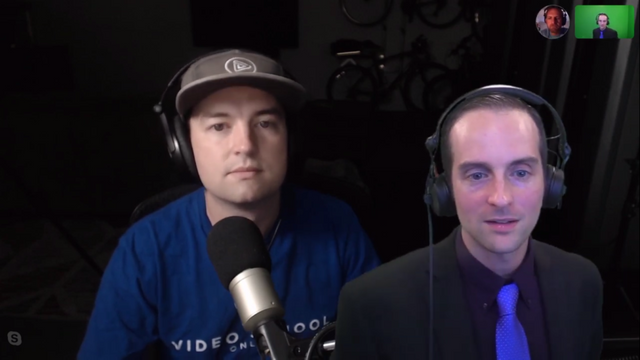
Phil: Yeah and I think on YouTube too. That's where YouTube has somewhat gone too is it's all about a person building that brand in that audience for themselves. Different people are attracted to different people but at the end of the day sometimes it doesn't matter. If some of the people I subscribe to, they're making videos about photography tutorials and then other days they're out jet skiing or they're making coffee or whatever it is. It's just because I've come to like this person as a person and I kind of consume any kind of content for that. Even recently, I changed my whole YouTube channel from ‘Video school online’ to my brand ‘Phil Ebiner’ because I felt like that allowed me to actually branch out and not worry so much about, “Oh well, it’s a video school online channel so I shouldn't be putting my personal video like family videos on here or oh I can't do personal finance videos because it's all about video production”.
So, having my YouTube channel as my name has helped me with that as well. I want to hear a little bit more about the YouTube ads. Also, Jerry, if you have any questions for us, now is the chance to ask us any questions but can you just talk a little bit more about those ads? Is it successful because you're getting people from the ad? Where are you sending that traffic? Just to the video to get more views or to different funnels or what?
Jerry: What I'm doing on YouTube is, I'm putting video discovery ads which means YouTube's doing a little display ad that looks like a little suggested video or something and then it says ‘Ad’ next to it. You only pay when someone clicks on it and actually watches your video and the global cost is about 2 cents per view. In the USA, Canada, Australia, & UK it costs about 5 to 9 cents per view and I'm sending everyone to my newest videos. I've got 2 basic audiences remarketing. Someone who has already watched my videos, bring them back because the majority of the people who watch my videos, 90% are not subscribed to my channel. So, I'm using the ads to bring people back and build a deeper relationship.
Then, I'm also testing out some ads like, how can I bring new people in who've never seen anything before? These are the ads that are working great so far to just get me out there and get my videos out there. I've got like 2 million impressions on YouTube for $1,000 in the last few weeks and that's outstanding. When people come to watch videos on YouTube, more likely, they are to watch more and just kind of get that positive reinforcement loop going again by adding fuel to the fire.
Phil: Yeah I get that. So any questions for us or anything you want us to answer for you before we wrap this up?
Jerry: Yes, I could do a whole another interview with things I'd like to ask you. Building Uthena and given that you've built video school online, what are some of the biggest challenges you've faced and overcome with? To me, it looks like you have a steady consistent business which is ideal or what are some of the biggest things you face in your business?
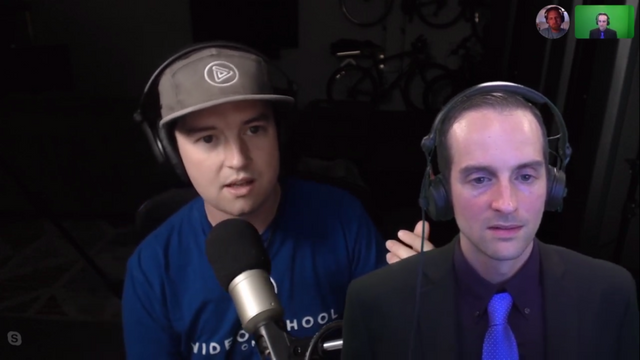
Phil: First was the different types of courses because even photography and video production is something in which everyone's not interested in both of those courses. So, packaging those into one membership like does that make sense to people or not? That has been a struggle. I used to have different membership packages, one for video production, one for photography, one for business but that wasn't really working for me. So, I ended up just going to the one video school online membership route which is $9 a month. I think I can increase that price point and people will still pay for it. I think this Black Friday, I’m going to offer lifetime subscriptions. I always have an annual sale where I do a lifetime subscription for the price of a year and that does pretty well but I'm also going to incentivize it as prices are going up this year, so get access to it now.
I think what has worked for me and which have the benefit of is just the amount of content that I have right now. I remember when I started into 2012-2013, I was already thinking, “Oh well, let me package this and put this together as a membership” but I only had a few classes and so it's not worth it for people to pay for that membership. But at this point, I have enough high-quality content and courses that it makes sense for someone, if they want to take multiple courses of mine to pay the monthly fee, that to be completely honest though, it always has kind of been something that has run in the background of Udemy and other platforms because those have been more successful for me. So, I've had the online courses since 2013-2014. I've had them on Teachable and it's just always been an option if you went to ‘video school online’ to get the membership or to buy courses on my platform.
One thing that I kind of did last year or the past couple years was, I wanted ‘video school online’ the website itself to be like one of the one-stop places. If you are a new photographer or a new video creator, I wanted to have all the resources that you might need. So, I outsourced and I wrote a lot of content myself. If you are a photographer, I've got articles on all of those basic questions of what equipment do I need, how to get started, all the basic rules and tips. I've got those articles and guides. So, my hope is someone can come to ‘video school online’ and spend you know hours and hours going through my articles and my videos that's free content. Then ultimately on most of those pages, there's the offer for the membership.
I remember at Udemy live a couple of years ago, MemeG has her own membership and it's again one of those funny things, she was like one of the keynote speakers at Udemy live and then she's teaching people how to create their own membership site using Teachable and how to promote that. She has her Academy I believe and she was a couple of years ago making over six figures a month. I believe it was a month with her membership and what I learned from her was, “Oh, I need to promote my membership which is something that I wasn't doing even it was there but I'm not promoting it and still to this day I'm not promoting it as much as I should.
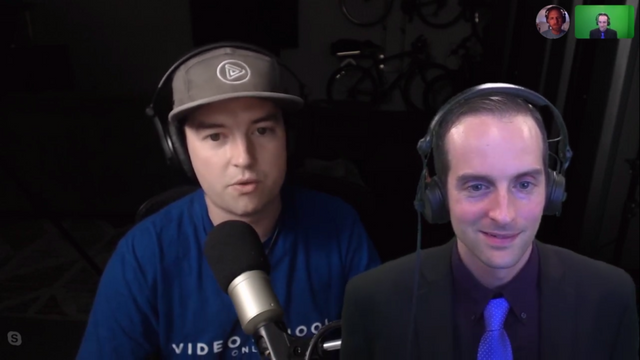
I mean on every YouTube video I should say, “Hey, if you're interested in this, all my courses are in my membership or just simply on Facebook, setting up a monthly post that which I have done that promotes the membership. That's something that has helped drive a little bit of the traffic but for me, I think the best thing was trying to create ‘video school online’ as an authority site on the topics that I teach courses on. So, I think with Uthena, your struggle is to have a ton of content on all kinds of different things and it be the one place that people find articles, guides and 3 videos, crypto, ethical hacking or whatever it is.
I think it's becoming more of a marketplace which is great but then in terms of driving traffic and building it, it's just getting enough content on there that it makes sense for someone to buy the the membership. Then using your other channels like YouTube or making more niche websites that are authority sites on the topics that drive the traffic. For me though, I've never really had success with ads and I've never really dived into that and that's something that you know maybe if I spent time and money doing ads, I would be a lot farther than in terms of income and things where I am today. So, yeah I don't know if that answers some of your question but maybe a little bit.
Jerry: Yes, from the outside Phil, your business looks outstanding and sometimes I've wished I had a business more like yours. That's steady, consistent, focused, and there doesn't seem to be any drama around your business either. You do a good job for people every day and they keep coming back like that's a great business online.
Phil: Yeah and I think for me, at some point, I had an aspiration that I wanted ‘video school online’ or whatever my brand was to be like the craftsy.com which now is I think myblueprint.com. It's like the go-to place with 500 classes on arts and crafts. They were sold to NBC Universal for 250 million dollars a few years ago. At one point, that was my vision. It was like, I'm gonna have this go-to place with hundreds of courses and more instructors but at the end of the day, I look at my life right now and my aspiration isn't that high and I'm okay with that. I think if I went back to it, I could just do photography courses or just photo editing courses which is what I enjoy a lot and maybe you know in the next 5-10 years, that's kind of where I'm gonna go. Just strictly photography and video and stop doing the marketing and all these other courses. It's a great topic that I believe means an end of earth to me. So for my life, I can teach photography and it's something that hopefully I'll continue to be passionate about. So jumping around from these different topics while it's interesting and fun again it goes back to well if you focus on one topic, maybe that'll be easier for you.
Jerry: Well, it's easier sometimes to get views but people keep asking me for crypto videos. I don't care about crypto. I'm done. Sometimes as an artist, you just can't limit yourself like that. It kills your soul even if you do get more views.
Phil: Yeah, I totally understand that too and I see a lot of Youtubers doing that where they're just creating content to serve the algorithm of YouTube to create more content no matter what the topic is. I mean, I follow so many photographers so that's what I think. Everyone comes out with “How to do stock photography” video in one week and it's like, “Wait a second. Why are all these photographers putting out these videos?” It's just because maybe they're not as creative or they're just you know doing it to serve the algorithm. Jeremy, do you have any other thoughts, advice or anything?
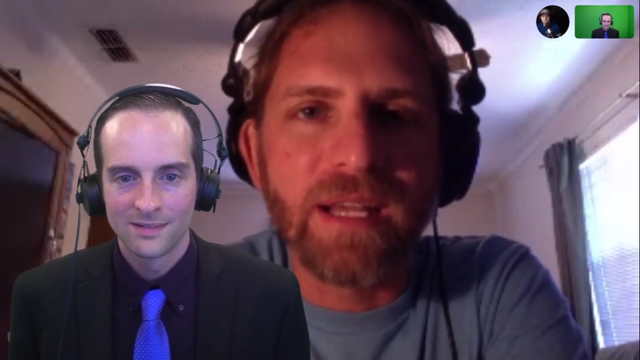
Jeremy: Yeah, it's so cliche with what that passion is and part of my struggle is like you know, I've done Photoshop courses and Adobe courses having a background in graphic design but deep down it's not what I'm overly passionate about doing and I kind of struggle with that myself because I know that if I produce another Photoshop course, I'm gonna make a lot of money but my heart's not in it. I just don't want to do that and so it is really kind of finding that thing and like I was saying Jerry, I kind of struggle with that wanting to do so many different things. I love playing guitar. I love surfing. I love graphic design. I love playing the saxophone and all these different things. It’s like, I want to go out there and just every day post something different but then like you said, you have that part of you where you’re going to be as successful as if you were to just focus on just one thing like just playing the guitar.
I did have a question for you that I wanted to ask you. Knowing everything that you know now and the road that you've traveled and all the experiences that you've had. If you could go back to like 2013-2014 and I really want to say this to anyone who's listening to the podcast, who's like at the beginning of the journey, haven't made a course, haven't started really an online business, knowing everything that you know now, what would you choose to do? What do you think would be your path? What would you do differently because that's a hard question to answer but if you could go back to those early days and you knew about courses, online marketing and YouTube, what do you think the path that you would choose to do and and how could you say that in terms of anyone listening that might help them out?
Jerry: That's an outstanding questions Jeremy. I'm doing my best to do today what I would want to do earlier which is YouTube. YouTube has been such a big part of my business. I remember thinking when I got banned from Udemy while I'm glad it wasn't YouTube because YouTube is like the main asset for my business and I'm finally most of the time on YouTube. I haven't really done a good job on YouTube. I've been so busy sending people to Udemy, telling people buy cryptos, and listen to my music watch my video games on Facebook. I have always been using YouTube to send people somewhere else and if I actually just focus on YouTube, to me, that has the very highest potential because YouTube is the second biggest search engine in the world.
I can sell a $200 a month or $6,000 membership program off of my YouTube instead of trying to sell lots of smaller things. So, I'd say, the times I've focused on YouTube heavily, my business has done really well and ironically those were often when things weren't going good like 2013. I was struggling. I put YouTube videos up and getting off of Udemy after 2016, I did a good job on YouTube for 6 months. My channel blew up and then I forgot about YouTube. Now I'm hitting YouTube hard and I just got a new partner today for $200 a month in my Partner Program and it's awesome.
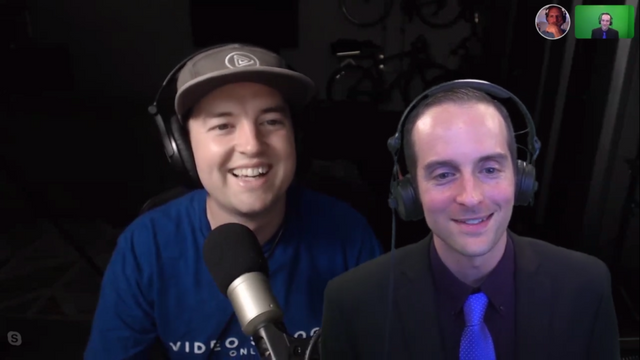
So, YouTube, YouTube, and YouTube. It's a platform of love and tolerance. I mean, my first video was literally on different ways to cuss on YouTube and they didn't ban me. Just put up a lot of low-quality YouTube videos and you can see some of the things that top YouTubers have done. Even if they demonetize them you know, ad revenue is a small percentage of all the income you can earn like you want to focus somewhere, where you've got the best chance of getting the most traffic, reaching the most people with the least resistance and where you've got the most love and tolerance.
Phil: Yeah, that's a great way I think to wrap up this interview. I really appreciate you being on the show. I really enjoyed it and I think just you being open to sharing your story has been really interesting. So Jerry, thank you so much for being here again and we truly wish you the best of luck and I'm interested to see where you go in the next few years. Hopefully, it's all uphill from here.
Jerry: I'm so glad to talk to you. I've been wanting to talk to you for years and this is a great format to do it and so thank you.
Phil: Thank you so much, Jerry.
Jerry: Thank You, Phil and Jeremy, for the questions and being here with me.
Jeremy: Thanks.
You may like this post: Preparing for Silicon Valley Investors Interview with Corey Chambers
Posted from my blog with SteemPress : https://jerrybanfield.com/online-course-masters-interview/
Congratulations @jerrybanfield! You have completed the following achievement on the Steem blockchain and have been rewarded with new badge(s) :
You can view your badges on your Steem Board and compare to others on the Steem Ranking
If you no longer want to receive notifications, reply to this comment with the word
STOPTo support your work, I also upvoted your post!
Vote for @Steemitboard as a witness to get one more award and increased upvotes!
Downvoting a post can decrease pending rewards and make it less visible. Common reasons:
Submit